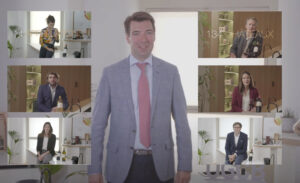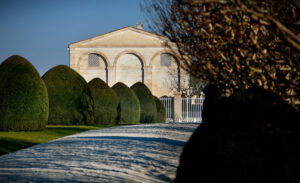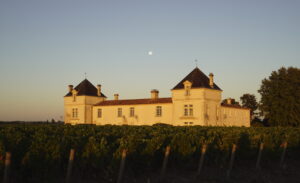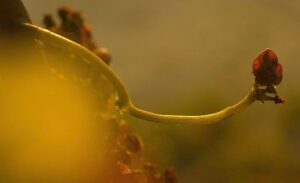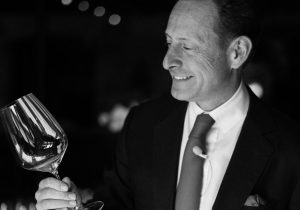French TV personality, Julie Andrieu, opens up about her love for Bordeaux
A longtime lover of Bordeaux wines, the author and TV presenter/producer is committed to helping winemakers in her adopted region. French TV presenter and food critic Julie Andrieu loves the Bordeaux area and its vineyards. With a new season of her weekly show ‘Les Potagers de Julie’ [Julie’s Vegetable Gardens] starting on national channel France 3 on Saturday 30th March, she has spoken to Le Figaro about her love for her adopted region.
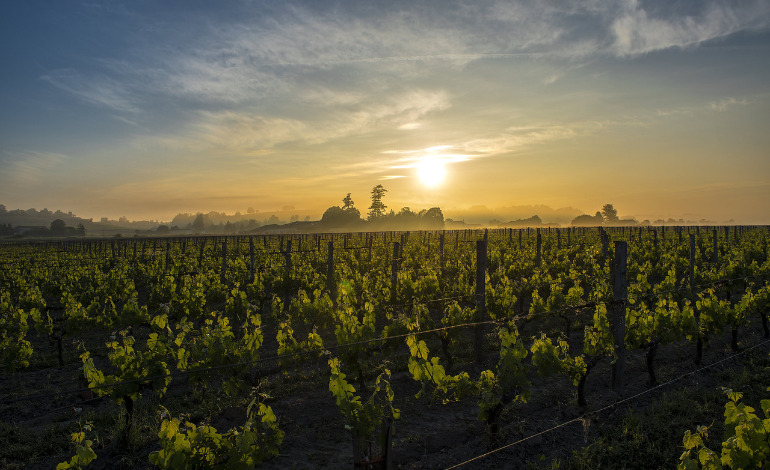
LE FIGARO:
Where does your love for the Bordeaux region come from?
Julie Andrieu:
I spent ten years looking for a country house. As I didn’t have ties to any particular region, it was an excuse to explore the whole of France, from Brittany to the Luberon Valley. You might say it was a little foretaste of ‘Les Carnets de Julie’ [Julie’s Culinary Notebooks, a show that aired from 2012 to 2020, in which Julie showcased the food and culture of various French regions, ed.]. In the end, I decided to set up home in the Entre-Deux-Mers area, in the Gironde. That’s where I learnt to appreciate Bordeaux wines – both the grands crus and the more niche appellations.
What is your first tasting memory that stands out?
It was a Château Valandraud (Saint-Émilion), tasted around 1995. It was a revelation for me. It had an incredible concentration to it and the kind of power that I had never before encountered in a wine. Then, around the same time, Bordeaux chef Jean-Marie Amat (who passed away in 2018) introduced me to Château Soutard, a Saint-Émilion grand cru, at an outdoor tasting on the banks of the Gironde. Truly unforgettable!

Are you worried about the future of Bordeaux’s wine industry?
Bordeaux has undoubtedly overproduced. It has been a steep reversal in fortunes. With the exception of the best-known appellations, the market has completely collapsed. The producers are all struggling. The model has to change.
Do you grow grapes?
I’m currently buying up some vines around where I live. They are run by tenant farmers; I don’t intend to make the wine myself. It’s a highly skilled job which can’t be improvised, and there’s no lack of trained professionals in the region. I want to preserve these wonderful landscapes and professions. The wine industry crisis is leading winemakers to pull up their vines or even abandon their vineyards; who knows what will happen to all this land in ten years? My aim is to protect the status of it as farmland. I might end up diversifying into another crop if local winemakers no longer have a market. What I want to avoid at all costs is seeing it converted into built-up land.
Cultivez-vous de la vigne ?
Je suis en train d’en racheter autour de chez moi. Les vignes sont en fermage, car je n’ai pas l’intention de faire le vin moi-même. C’est un métier à part entière, qui ne s’improvise pas, et les professionnels ne manquent pas dans la région. Mais je veux préserver ces paysages et ces métiers. La crise de la vigne amène les vignerons à arracher ou à abandonner les vignobles, et qui sait ce que ces terres deviendront dans dix ans ? Mon projet est de sanctuariser ces terres agricoles. Peut-être y ferais-je une autre culture si les vignerons de la région ne trouvent plus de débouchés ? Mais je veux à tout prix éviter l’artificialisation.
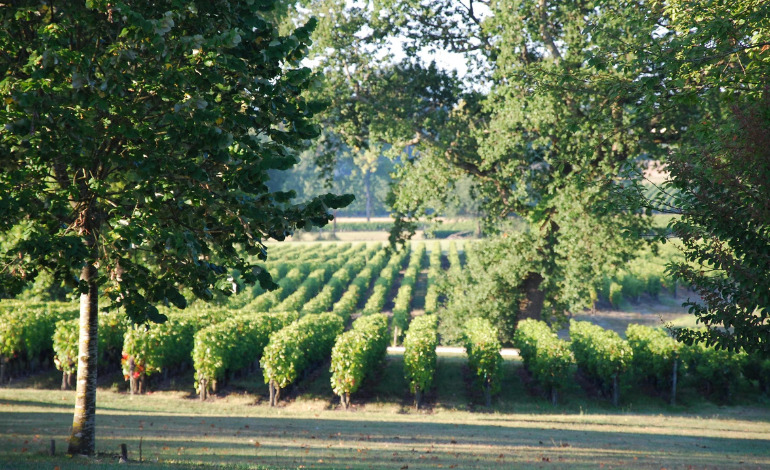
"I would say that, for a novice, it’s the perfect region to introduce you to wine tasting."
How would you describe a Bordeaux wine to someone who has never tasted one?
Like the glass in which they are bottled, Bordeaux wines are broad-shouldered. By that, I mean that they have a particular style: they are structured, with good length and complexity, and always very elegant. I would say that, for a novice, it’s the perfect region to introduce you to wine tasting. I would also add that it’s essential to understand the specificities of France’s flagship winemaking region, an area with the greatest viticultural reputation abroad.
Your favourite tasting moment?
The wine we served at our wedding in 2009, which we celebrated with an intimate gathering in the Entre-Deux-Mers: a Château Canon 2000, silky, elegant – the perfect Bordeaux! We had bought it ‘en primeur’. We still have a few bottles left. We open one religiously every year. Our stocks are running out! Maybe we should get married again? (Peals of laughter.)
White or red?
I’m firmly in the red camp! I enjoy white wine but, as a serious insomniac, I’m a little wary of it, as it keeps me awake. And, as I avoid drinking alcohol at lunchtime, white wine doesn’t play a big role in my life these days, much to my regret…
Conventionally produced, organic, biodynamic, natural? Does it matter to you?
Many winemakers experiment with different grape varieties and try to find alternatives to the inescapable duo of merlot and cabernet sauvignon. Others try out organic and biodynamic farming. It’s not easy in this region, with its unpredictable climate. It’s an admirable exercise in rigour on their part. They deserve all our respect for managing to produce superb wines with greater constraints, all while keeping in mind long-term soil health. Here, I’m thinking of Château Haut Sociondo in the Blaye area, an outstanding wine which is up there with the very best. It was Gérard Margeon, Alain Ducasse’s chief sommelier, who introduced me to it, and my devotion to it hasn’t wavered since. But organic methods aren’t everything, it’s also the innovative approach of certain great winemakers which is regenerating the whole of the Bordeaux region, even the lesser-known appellations. The arrival of Stéphane Derenoncourt, the famous winemaking consultant, near the charming village of Castillon-la-Bataille injected new life into an area of land which had somewhat dropped off the radar. He and his wife cultivate a dozen plots, applying to each one a specific way of working. The result is a wine that sings with energy.
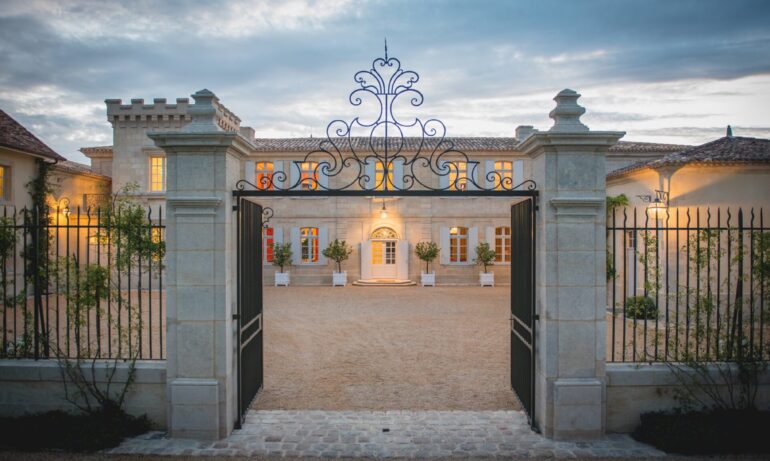
"On the Left Bank, it’s Saint-Julien. And on the Right Bank, Pomerol and Saint-Émilion, obviously. They are my appellations of preference as they are the ones where I spend time."
What are your favourite appellations?
On the Left Bank, it’s Saint-Julien. And on the Right Bank, Pomerol and Saint-Émilion, obviously. They are my appellations of preference as they are the ones where I spend time. There are others that deserve more recognition, such as Lalande de Pomerol, Sainte-Foy Côtes de Bordeaux, and Castillon Côtes de Bordeaux. All these appellations are bursting with gems and are every bit as good as their famous neighbours. The Entre-Deux-Mers region is also a goldmine of Bordeaux and Bordeaux Supérieur appellations to discover.
In terms of architecture, which are the most beautiful châteaux?
I love Château Fonréaud in the Médoc, with its Napoléon III style and superb view; Les Carmes Haut-Brion (Pessac-Léognan), which appears to have come straight out of a fairytale; and Cos d’Estournel (Saint-Estèphe), with all the splendour of an oriental palace. In Saint-Émilion, I like the futurist aesthetic of Château La Dominique and of Cheval Blanc.
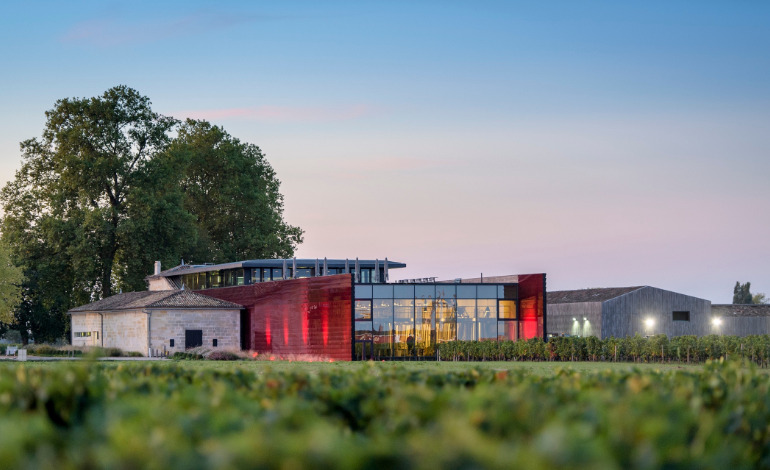
Do you support wines made by women?
More and more women are entering the winemaking profession, that’s for sure, and I think we can now sense a greater delicacy in the making of the region’s wines, which have historically been known as quite masculine. However, what is even more important today is to support winemaking in general, as it’s an industry that is losing momentum, shunned by today’s younger generations. I despair of the fashion for spritzes, which has sent Prosecco sales soaring (and not the best ones!), to the detriment of our French wines. A female-run winery to which I’m very attached is Château la Grâce Dieu, a family-owned winery which is today managed by a trio of sisters, and which flies the flag for Saint-Émilion wines at an affordable price.
"More and more women are entering the winemaking profession, that’s for sure, and I think we can now sense a greater delicacy in the making of the region’s wines, which have historically been known as quite masculine. "
What is your latest favourite?
It’s Château Le Gay 2004, an elegant, pure-blooded Pomerol.
And your latest discovery?
A white Sauternes which is amazingly dry: La Demoiselle de Sigalas 2015.
In partnership with Le Figaro Vin
Written by Isabelle Spaak - Le Figaro
